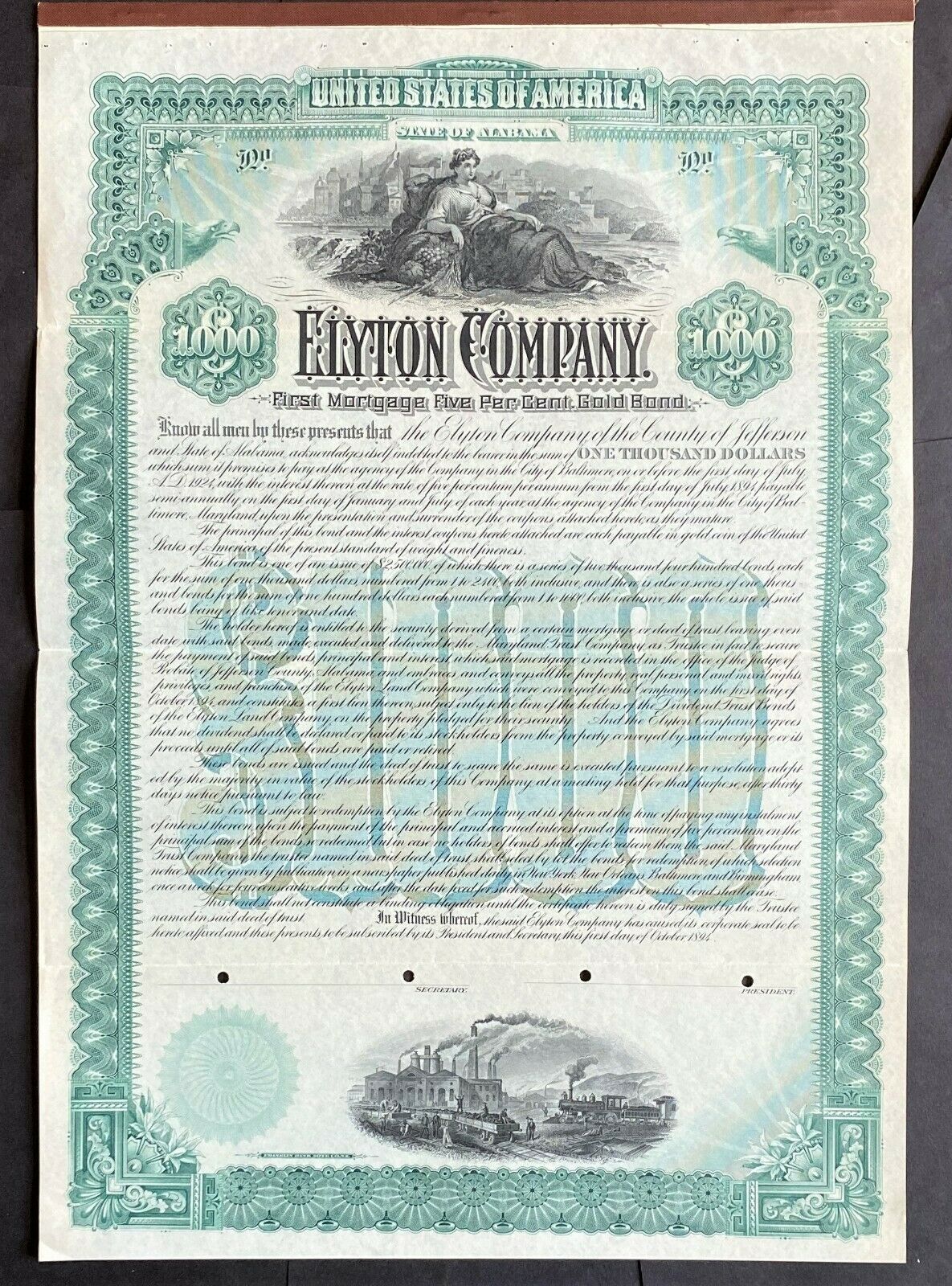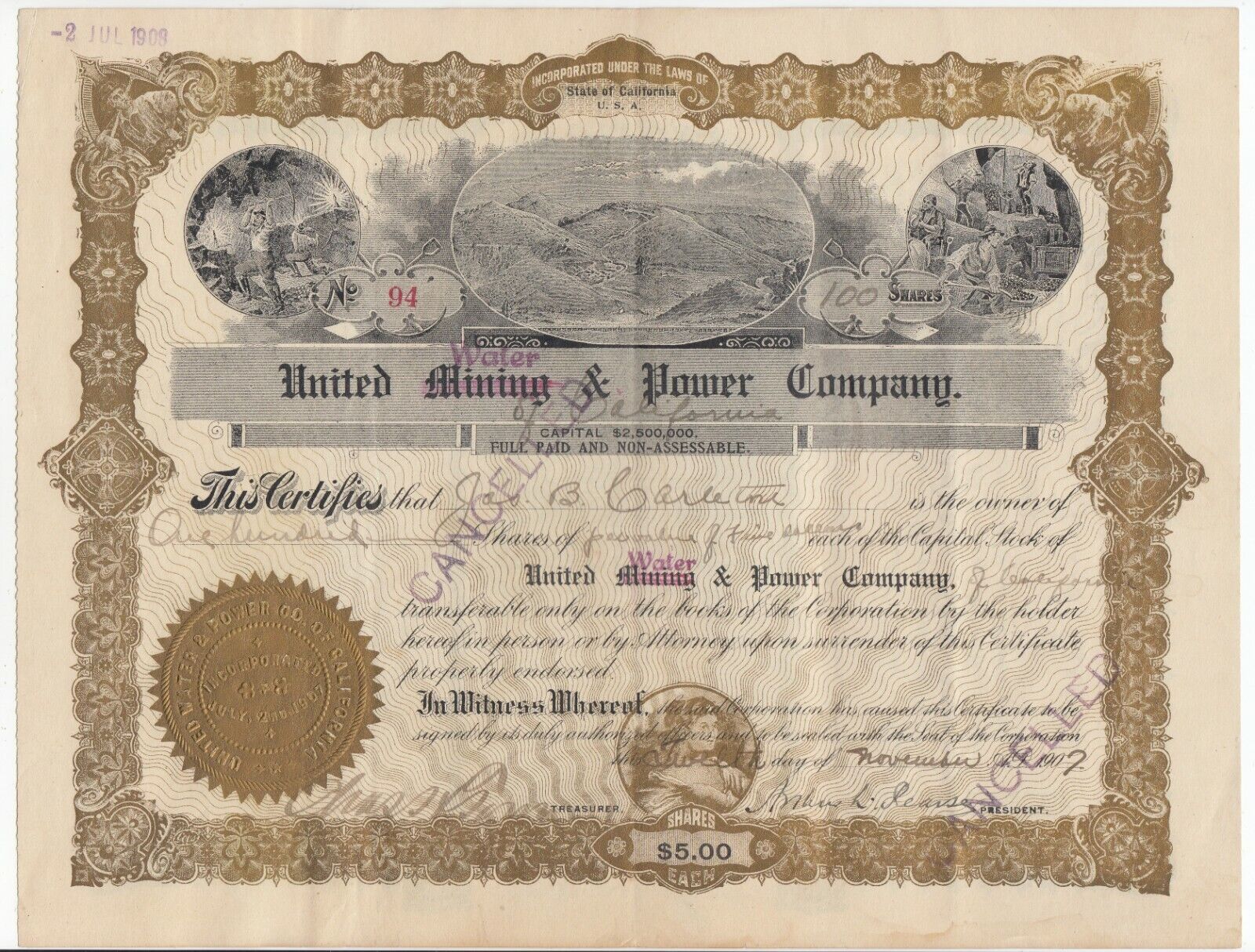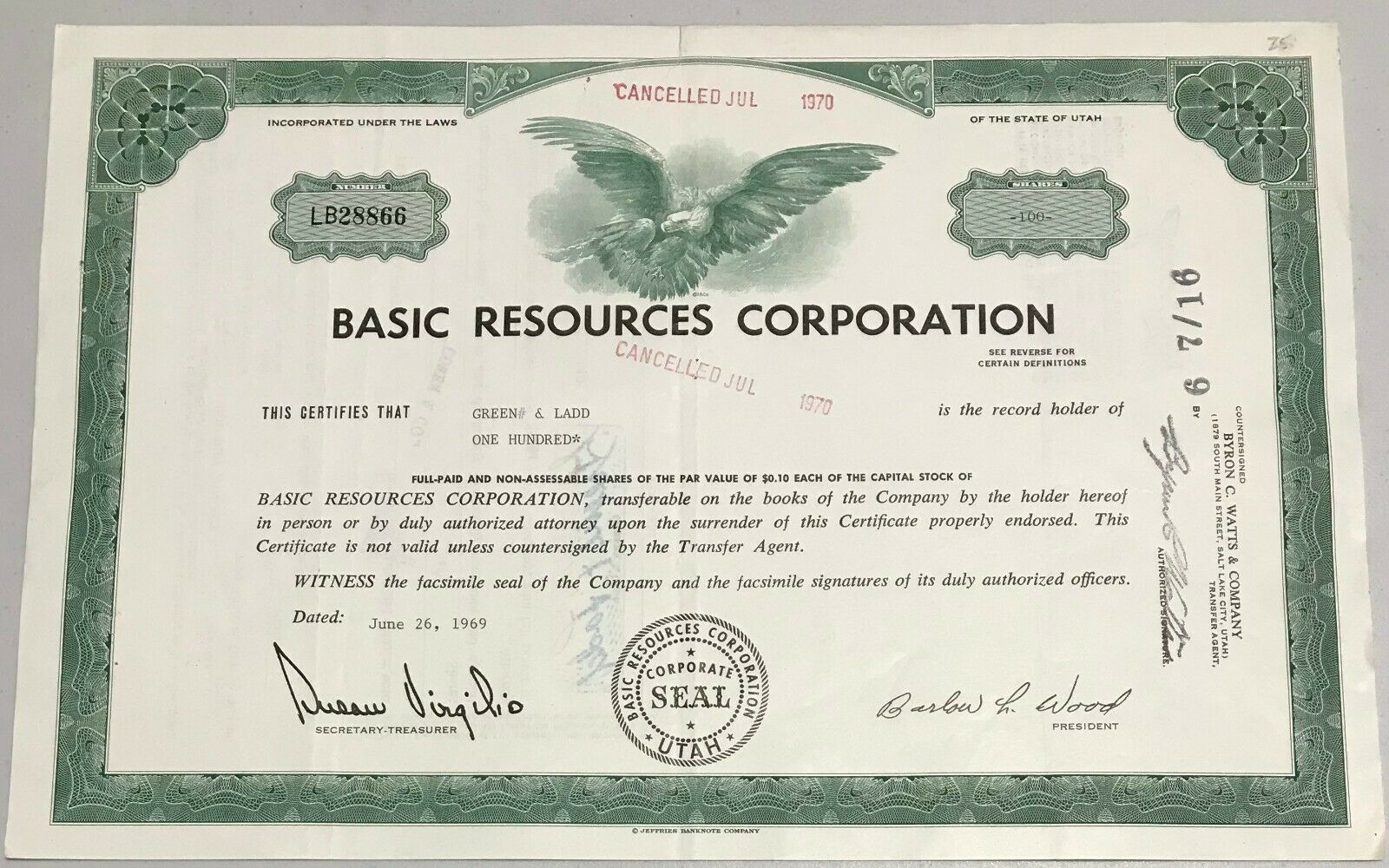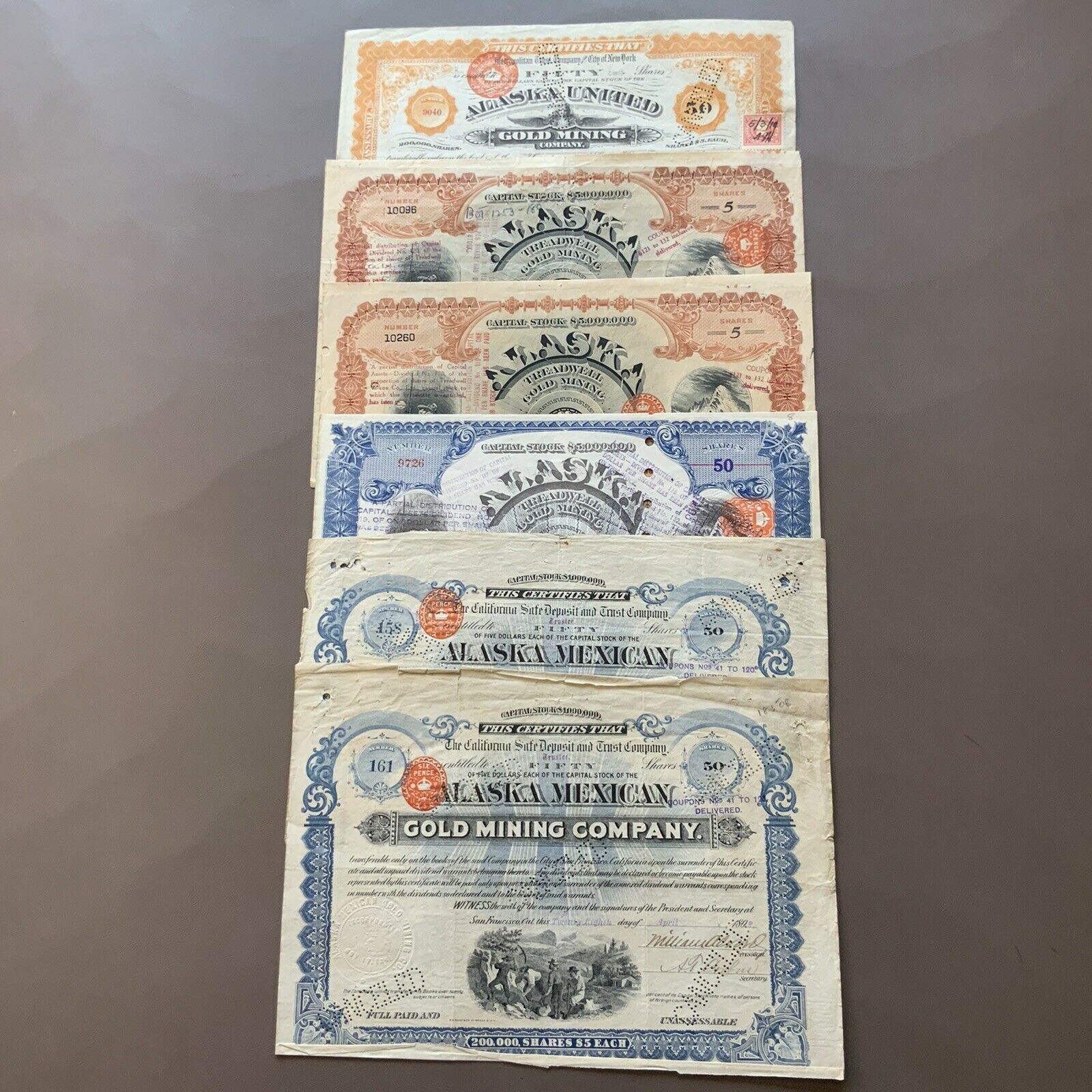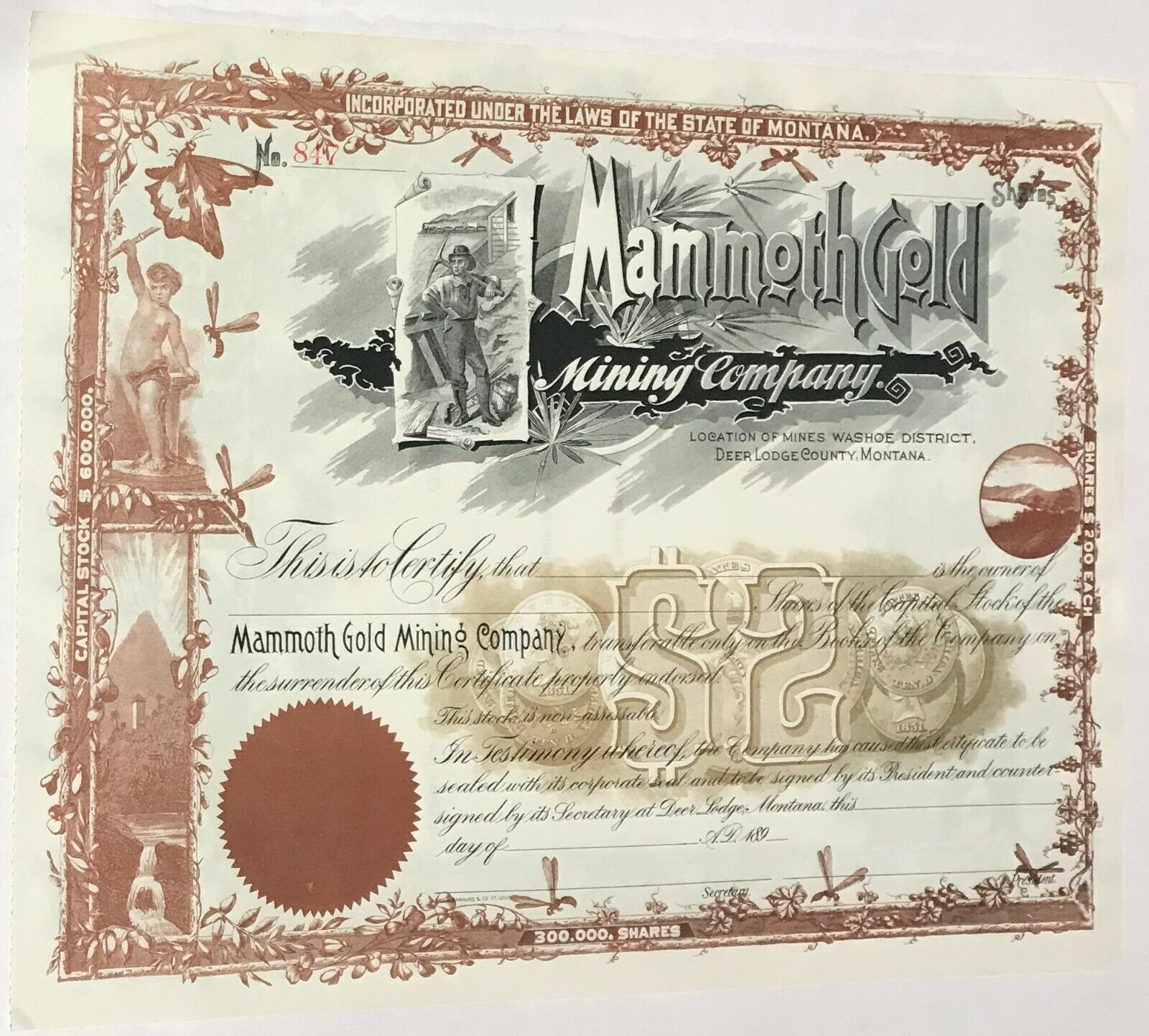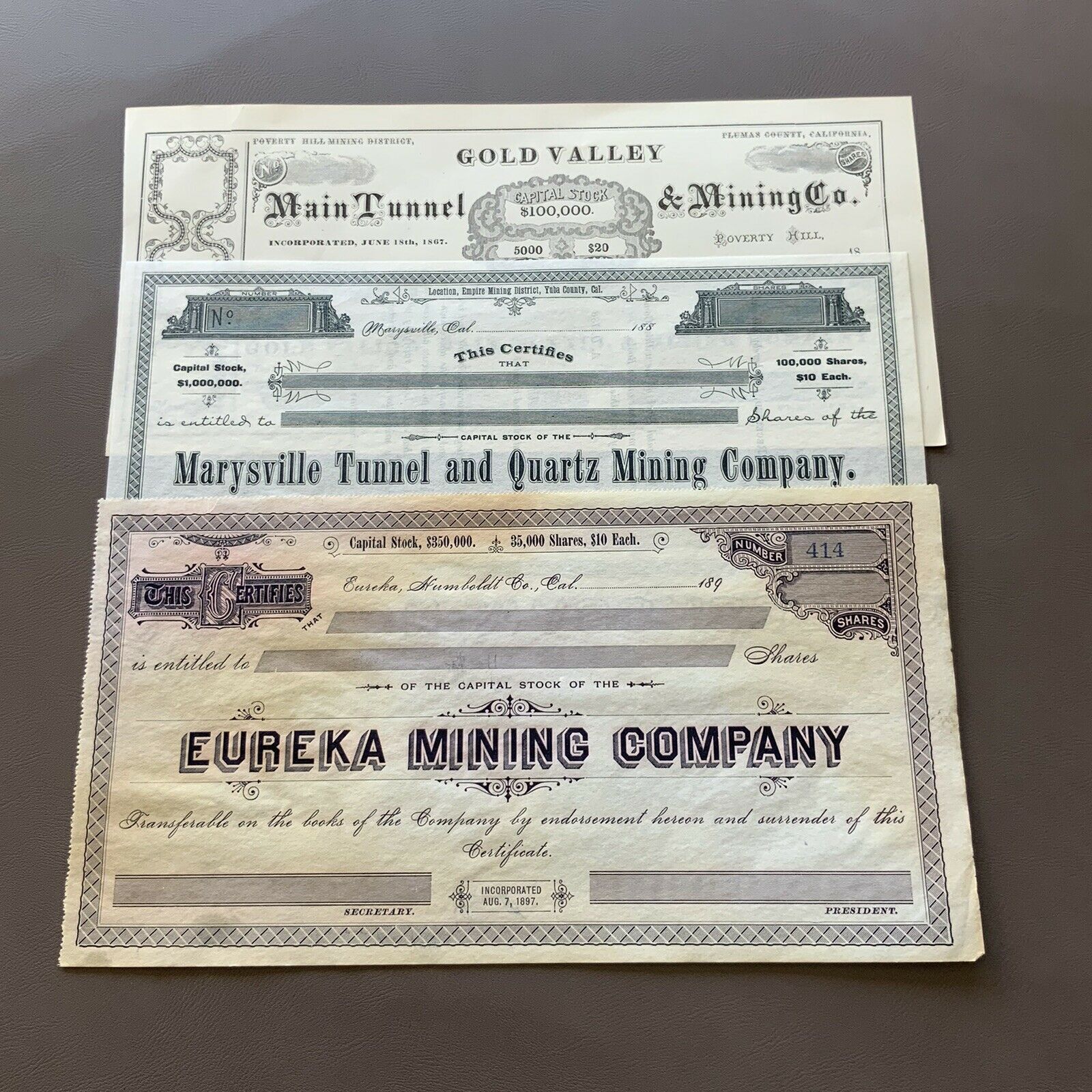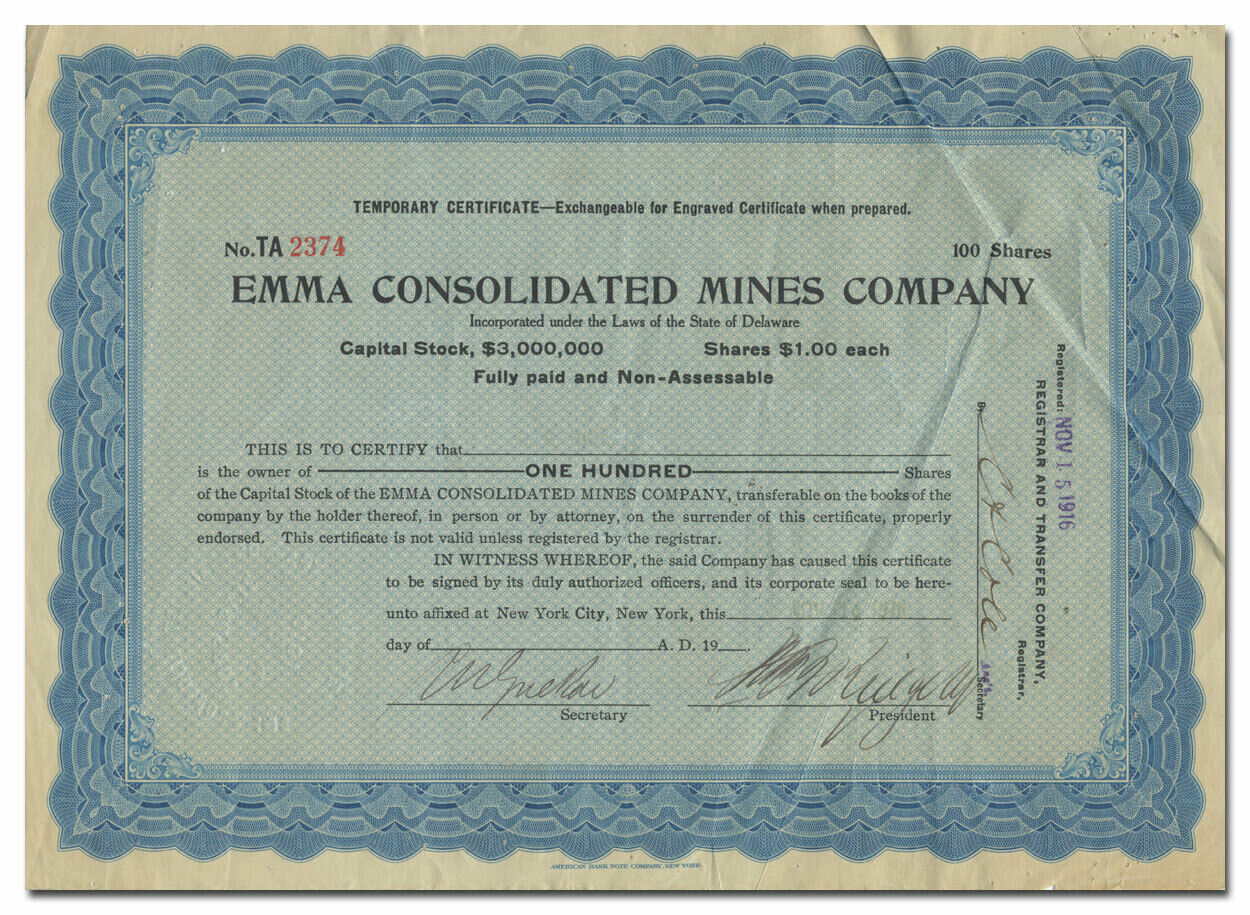-40%
ELYTON CO. Bond SPECIMEN 1894. Birmingham, AL. Land Iron Mining Steel Railroads
$ 21.58
- Description
- Size Guide
Description
Elyton Company of the County of Jefferson, State of Alabama. Bond SPECIMEN dated October 1, 1894 at the City of Baltimore, Maryland. Incorporated January 27, 1871 in the State of Alabama.,000 First Mortgage 30-Year 5% Gold Bearer Bond.
All coupons No. 1 through 30 remain in one sheet.
Principal due 1924. Certificate is about 10" x 15." Black print with green borders and underprint.
Vignettes with reclining allegorical woman next to cornucopia and city beyond (top), and mining, smelting, milling, and railroads (bottom).
In the heart of Jefferson County, Alabama, the valley at the base of Red Mountain lay uninhabited for decades of Alabama history. Throughout the Civil War, the land remained undeveloped. However in 1870, when prospectors discovered that the abundant red rock of the mountain and the surrounding area was iron ore, the crucial raw material for steel and iron production, the foundation of the industrial New South City was forged. After railroad tracks were laid to the area, the Elyton Company (Elyton Land Company) founded a new town in 1871. The Elyton Land Company was incorporated on January 26, 1871 in order to purchase land for, and establish and promote the new city of Birmingham.
Colonel James R. Powell was elected president of the Elyton Land Company on January 27, 1871; he selected Major William P. Barker as engineer of the proposed city. With dreams of the industrial behemoth in England of the same name, they decided to call it Birmingham. Birmingham was founded through the merger of three pre-existing farm towns, notably, former Elyton. It grew from there, annexing many more of its smaller neighbors, into an industrial and railroad transportation center with a focus on mining, the iron and steel industry, and railroading. Birmingham was named for Birmingham, England, UK. John T. Milner, a railroad engineer, was employed by Elyton Company to survey the route of the South and North Alabama Railroad from Montgomery to Decatur. At the same time, the Alabama and Chattanooga Railroad was being constructed from Chattanooga to Meridian.
The Elyton Company controlled the still-unimproved 1,500-acre "South Highlands" parcel and planned and constructed the roads and utilities for the new city. Most important to the success of the area would be an attractive park and resort at the terminus of a trolley line which showed the choicest building sites to their best advantage. In 1884, this parcel of land was still “primeval forest”, protected from trespassing “wood-choppers” by armed company agents. Elyton Company's Major Willis Milner prepared a large-scale topographical survey of the entire parcel before setting the route for what would become Highland Avenue. A larger tract, near the eastern end of the boulevard, was selected for “Lakeview Park”, with an artificial lake, resort hotel, dance hall, beer garden and other entertainments, including the county’s first baseball diamond (the site, in 1893, of the first ever football game between Alabama and Auburn). A portion of Highland Avenue was included within the municipal limits of the Town of Highland, incorporated in 1887. The town graded and curbed that section of the thoroughfare. Once Birmingham annexed Highland in 1893, it proceeded to improve the remainder of the boulevard. The streetcar system continued under the auspices of the Birmingham Traction Company.
The pace of Birmingham's growth during the period from 1881 through 1920 earned its nicknames The Magic City and The Pittsburgh of the South. In the field of railroading, the two primary hubs of railroading in the Deep South were nearby Atlanta and Birmingham, beginning in the 1860s and continuing through to the present day. The Elyton Land Company investors included cotton planters, bankers and railroad entrepreneurs. It sold lots near the planned crossing of the Alabama & Chattanooga Railroad and South & North Alabama Railroads.
Condition: Very Fine++
, usual bond folds, very minor creasing, no tears, light signs of wear/handling/toning (see photos), uncancelled.
Printer: Franklin Bank Note Company, New York.
PAYMENT AND SHIPPING
Please read certificate d
escription details shown above before bidding.
Please contact me with any questions before bidding.
Payment by PayPal
and accepted credit cards
only.
Shipping within the U.S. is by USPS First Class Mail (.00 for packages weighing 13 ounces or less) – shipping for packages weighing over 13 ounces will be shown on your invoice. If another shipping method is requested, a revised invoice will be sent. International buyers need to wait for my invoice before paying.
Combined shipping cost will be offered for multiple items won – please wait for invoice before paying, or if specific shipping method or insurance is requested.
Multiple items will be shipped together in one package; large stocks and bonds may be shipped folded along existing fold lines.
All packages will be shipped with certificates placed in plastic sleeves with cardboard backing and marked “Do Not Bend”.
I do not profit on shipping costs charged.
Items typically shipped within two days of payment.
RETURNS AND GUARANTEE
:
Buyer satisfaction and authenticity of certificate is guaranteed – returns are accepted with 14 days of purchase (buyer pays return shipping cost unless item received is not as described in this listing).
All certificates are originals – no reproductions.
